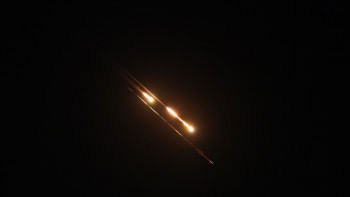Is this the best we can do?

The international community's response to the biggest movement of refugees and migrants in Europe since the aftermath of World War II is inadequate and flawed.
About one million migrants are camped on the southern shore of the Mediterranean, leaving behind civil war, persecution and misrule. In July alone, more than 100,000 migrants entered the 28-nation European Union.
Despite this increase in the scale of this humanitarian crisis, today, only 26 countries participate in the UNHCR's resettlement program, whereby refugees are moved from the first safe country they reach to other countries willing to provide legal status. Although this is by far the most effective mechanism for protecting refugees, only 103,000 people were able to use it last year.
This year's migrants hail mainly from Eritrea, Gambia, Nigeria, Somalia and Syria where conditions entitle their citizens to request asylum. The more economically stable northern European countries have continued to offer inclusive asylum policies. In 2013, Sweden announced that it would offer permanent residency to all Syrian refugees. The same year, Germany, Europe's No. 1 power, also committed to offering 10,000 Syrian refugees temporary residency. It expects up to 800,000 asylum seekers this year. The US is going to welcome between 5,000 and 8,000 Syrian refugees next year.
Among states on the EU's eastern edge, Hungary has registered about 120,000 asylum requests so far this year. The country's location makes it a preferable entry point for many migrants who cross the Aegean Sea from Turkey to Greece and then attempt to venture to the more prosperous Northern Europe through the Balkans. Hungary, is, however, planning to build a giant wall along the border with Serbia. Macedonia declared a state of emergency and shut its borders for three days to halt the huge influx of people mostly fleeing war in Syria. Slovakia says it will only accept Christians when it takes in Syrian refugees under an EU relocation scheme.
Turkey has been busy hosting 1.6 million displaced Syrians within its borders but has stopped short of granting them official refugee status, which would entitle them to additional social services. The Jordanian refugee camp Zaatari alone hosts more than 82,000 people. Lebanon, a country of just 4.5 million people, has taken in more than one million refugees.
Recently, European Union officials announced a 10-point plan to tackle the influx of refugees. The plan would double the size of border control operation and launch a systematic effort to destroy smugglers' vessels, among several proposals aimed at processing and preventing future migrants. The expansion of Europe's naval presence in the Mediterranean is having benefits, leading to a 95 percent decline in the death rate of those attempting to make the journey to Europe from Africa.
The problem is border control is all that EU member countries have managed to agree on, failing to reach a consensus even on the European Commission's modest proposal to share responsibility for processing asylum applications and resettling refugees. Also, the EU has significantly cut resources allocated to maritime rescue operations with several countries arguing that a high chance of being rescued acts as a "pull" factor which only encourages more migrants.
No one expects Europe to let everyone in. But you cannot keep everyone out either, because, after the crimes of the Second World War, countries made solemn pledges never again to abandon innocent people to persecution and conflict. And the refugees, they keep coming because you cannot easily impose peace upon Syria or wish good governance on Eritrea and Somalia.
Engagement is the key and may eventually help stem the flow of refugees. If the international community works for a settlement in Libya, the trafficking networks may become less powerful. If the EU accepts North African produce, it may see fewer North African people knocking on its door. If more EU members offer help to the refugees in Lebanon, fewer are likely to turn up on the streets of Paris and London. All this we can wish.
Clearly, the EU, advanced countries in the Gulf, and the UN must do much more to protect those fleeing conflict and despair. Europe could look into expanding temporary work visa programmes, while developing labour-matching schemes for refugees.
The values of modern democratic countries extend well beyond their borders. They must act on multiple fronts at once, from saving lives at sea to helping countries with the greatest burden. While Europe's migrant crisis unfolds on the Mediterranean Sea, the solution has to be found on land.
"Peace is indivisible," said philosopher GC Dev.
How can we have peace in our home when others are suffering out there?
The writer is an engineer-turned-journalist.

 For all latest news, follow The Daily Star's Google News channel.
For all latest news, follow The Daily Star's Google News channel. 



Comments